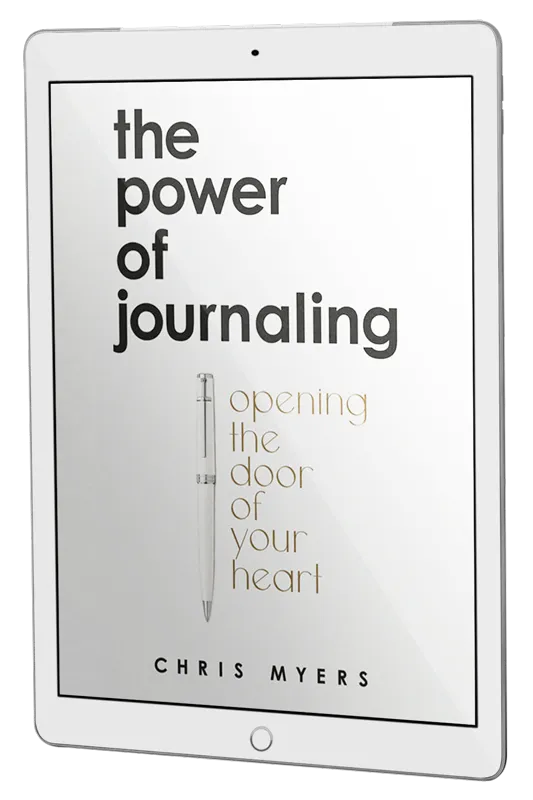Pen and Paper
By Roni Lacuesta
“I LOVE YOU!” Thirty-two years ago, these three profound words marked a pivotal turning point in my life, echoing for the first time through the pages of my journal. It was a revelation that took me completely off guard, especially as I wrestled with feelings of inadequacy and crippling self-doubt. Just days before, I had stepped into a Christian Rehabilitation Center, my life shattered and weighed down by the burdens of a tumultuous past. As part of my recovery from addiction, the staff introduced me to the practice of two-way journaling with God—an enlightening and transformative approach aimed at nurturing a profound, redemptive relationship with Him.
Let me be frank: my journaling was far from pristine. It unfolded like a tumultuous river, swirling with intense self-reflection, lingering doubts, and disjointed thoughts. Yet, within that exquisite mess of raw emotions, God broke through the thick walls of fear, shame, and pride that had long surrounded my heart. Amidst my incessant scribblings and fervent musings, His voice emerged like a luminous beacon, cutting through the clamor with a gentle yet powerful proclamation: “I LOVE YOU.” In that moment, I was overcome with a deep sense of gratitude and hope, realizing I was experiencing grace. Instead of facing the heavy hand of judgment, I felt the warm embrace of the Father welcoming His wayward child back home.
Journaling with pen and paper has profoundly transformed my personal relationship with God, allowing me to engage in a unique and intimate communion with the Creator of the universe. Each time I sit down with my journal, I feel a sense of anticipation, as if I am about to embark on a sacred journey .Neuroscience research supports this transformative experience, suggesting that writing by hand engages different cognitive processes compared to typing, which can facilitate deeper emotional expression and self-reflection.
Through this tactile medium, I have been able to articulate my raw emotions, pouring my heart onto the page as a form of confession and communication with God. It feels as though I am laying bare my soul, confronting my vulnerabilities while simultaneously visualizing His presence in my life. As I translate spiritual impressions into words, I often find that the writings come alive, creating a dynamic dialogue that enriches my spiritual experience and deepens my understanding of His grace.
Studies indicate that expressive writing can serve as a therapeutic tool, promoting psychological healing by helping individuals reframe traumas, address hurt, and resolve attachment issues. For me, this journaling practice has become a sanctuary for healing. It has guided me on a profound journey toward forgiveness, repentance, and restitution. By confronting my personal struggles and recording them on paper, I engage actively with my emotions, enabling a cathartic release that lays a strong foundation for my spiritual growth.
In conclusion, journaling with pen and paper is more than a mere transcription of thoughts; it is a powerful, healing practice supported by neuroscience that fosters a deeper connection with God and promotes emotional well-being. As I fill the pages with my thoughts and prayers, I realize that each entry not only reflects my struggles but also celebrates the journey of faith I have embarked upon.
Social media
Sharing Our Treasures
Be One of the First 50 Readers!
Sign up for my newsletter and you’ll be one of 50 subscribers that’ll receive a free copy of The Power of Journaling!


Leave a Reply